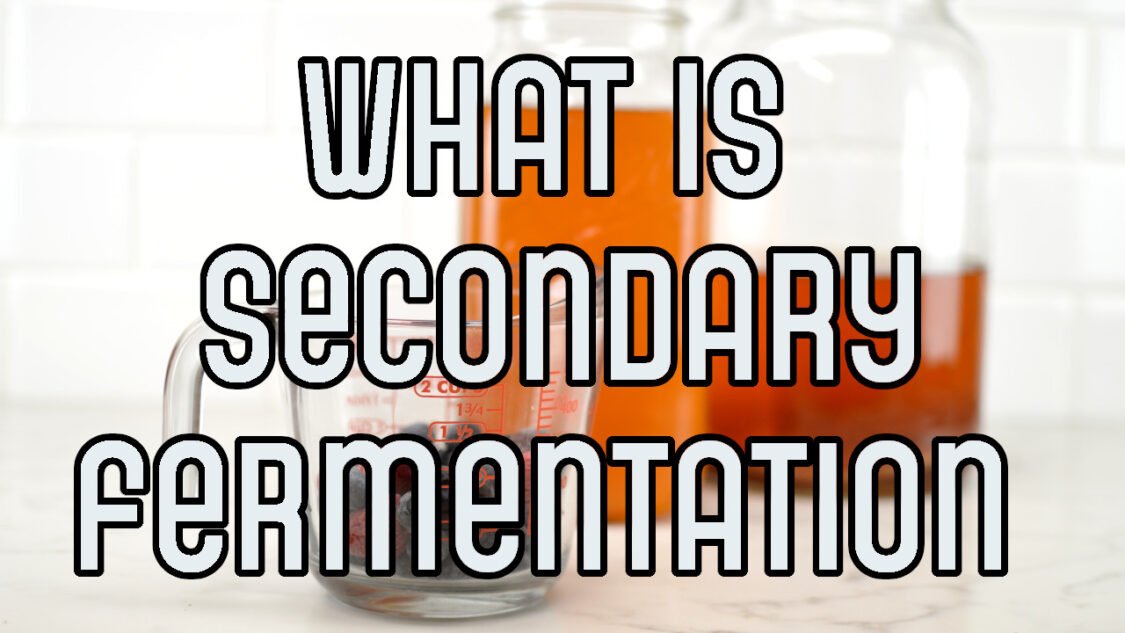How To Clean Kombucha Supplies
I this post I outline how I clean my kombucha supplies and include best practices to ensure a safe and strong kombucha fermentation.
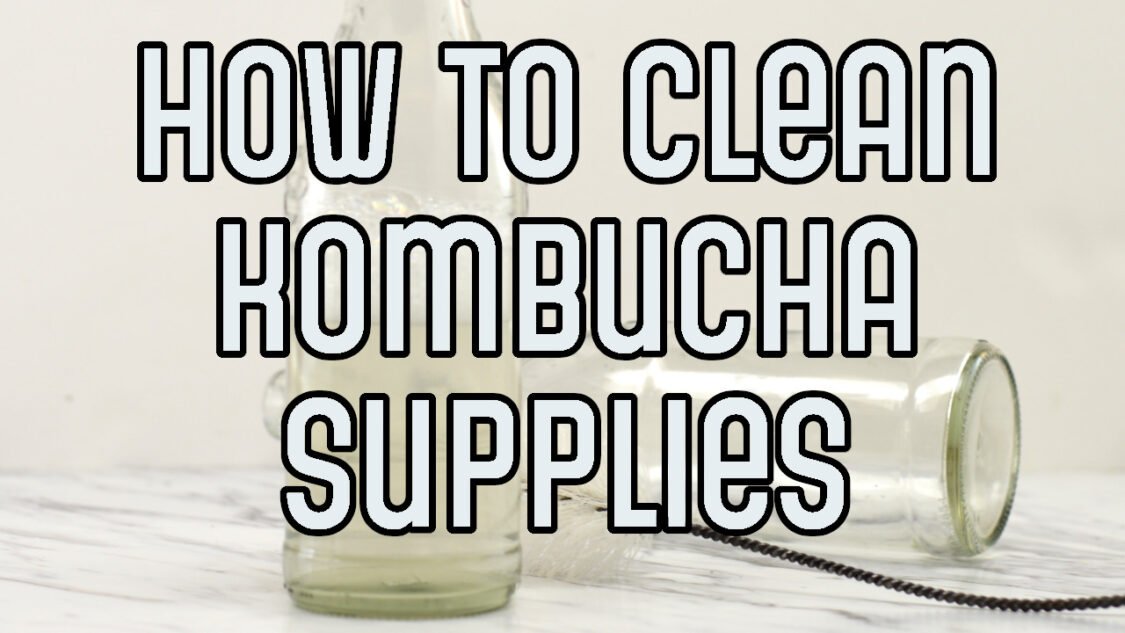
The introduction of fermented kombucha to the sweet tea at the start of fermentation creates an acidic, low pH environment which kills off or slows down the growth of many unwanted microbes. Thankfully, the cleaning and sanitization of kombucha making supplies is much less intense than for beer brewing.
Thankfully, kombucha is somewhat easy and low-tech when it comes to cleaning, so you you can keep it simple.
Why is cleaning important?
It is important to ensure your kombucha fermenting vessel and kombucha bottles are clean to ensure a safe and tasty beverage.
When making kombucha, the starter liquid and SCOBY are added to a sweetened tea mixture. The starter liquid, besides containing the good bacteria and yeast that produce kombucha, brings the overall or below at the start of fermentation. This pH is low enough to reduce the chances of any unwanted microrganisms from taking hold before fermentation starts.
However, if your fermentor is not clean there is a chance that unwanted bacteria (or mold) could take hold before fermentation really gets going.
How to clean kombucha supplies
Simply clean kombucha making supplies just as you would clean any other kitchen glassware or plates used for serving or eating. After rinsing away and debris and soaking to remove any dried on residue, wash with soapy water and a clean brush or sponge (use caution: used sponges are typically one of the most bacteria laden areas of the kitchen) to scrub it clean.
Rinse well and allow to dry. Alternatively you may wash everything in the dishwasher after the initial rinse and removal of any caked on gunk.
To clean bottles, soak as needed to remove any dried on residue before cleaning with soapy water and a bottle brush to thoroughly clean the inside of the bottle. You may also run them through the dishwasher after soaking and rinsing. I like re-used 16 oz. kombucha bottles since the mouth is a bit larger making them easier to clean. Check out my guide to the best bottles for kombucha.
Sometimes fermenters and glass may need an overnight soak to loosen up any dried kombucha residue, fruit or other gunk. Just fill with water and set on the counter for the water to do it’s work!
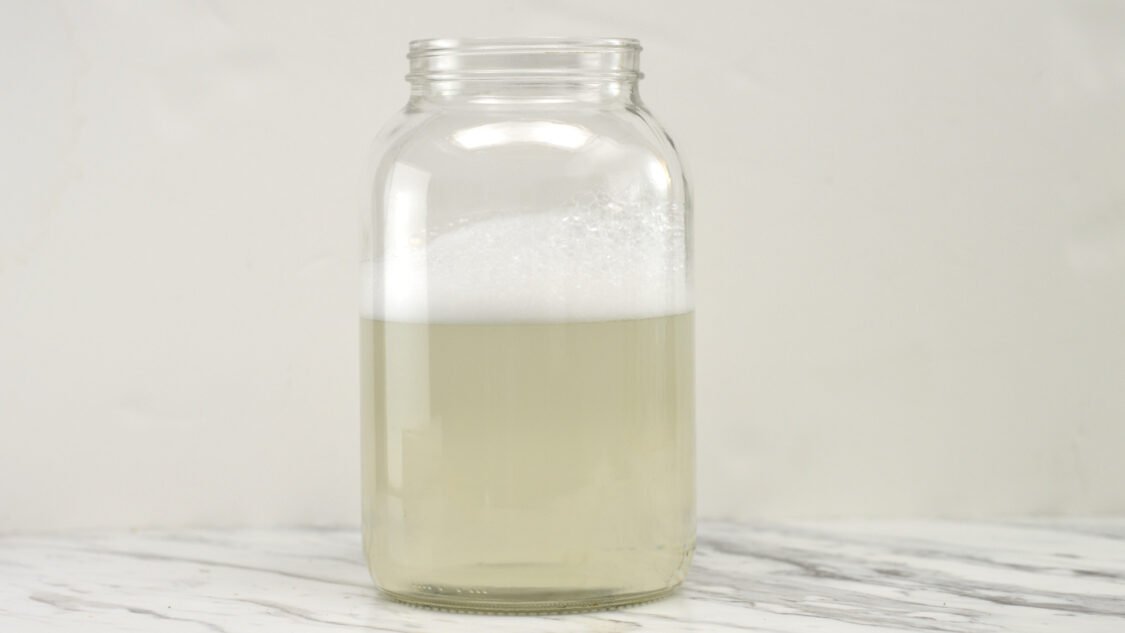
Kombucha Cleaning Tips
- Wash your hands before hand washing your kombucha supplies
- Make sure to use clean sponges, scrubbers and brushes to ensure this is not a source of contamination
- Use a bottle brush (affiliate link ↗) and give each bottle a quick scrub to remove any caked on fruit or flavoring bits
- Soak anything with dried on residue before rinsing and washing
- Avoid using vinegar for any part of your cleaning process. It’s unnecessary and it’s possible that vinegar will permanently alter the balance of your SCOBY or cause contamination.
- Rinse everything thoroughly and use a clean towel to dry or allow to air dry upside down (so that mold spores cannot float inside)
- Use an acid sanitizer like Star San (affiliate link ↗) after cleaning for extra peace of mind
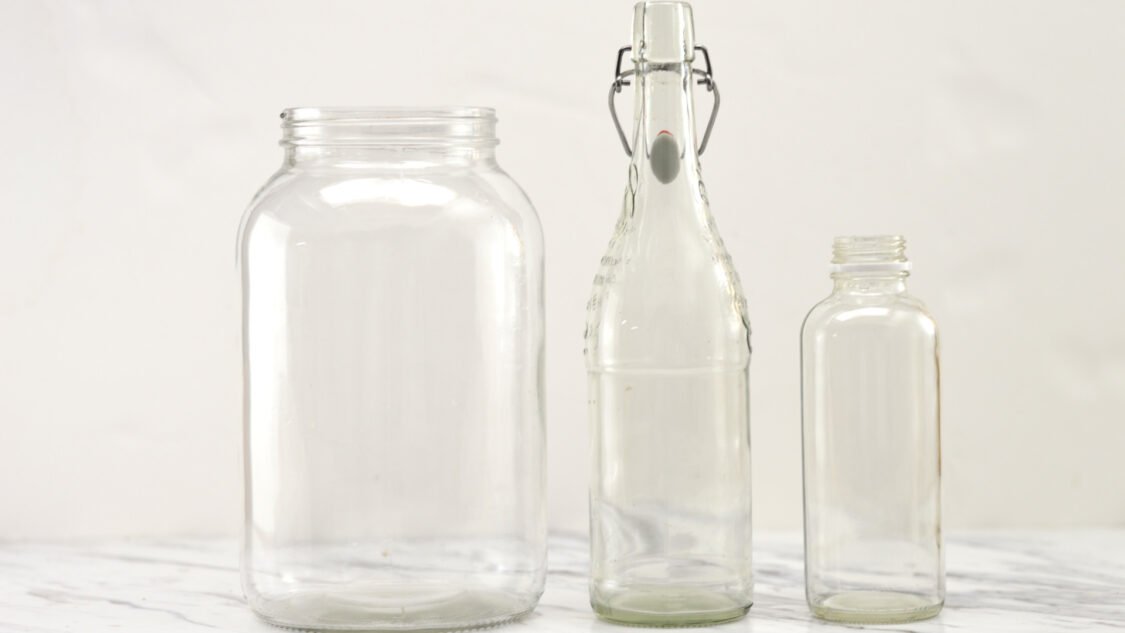
Why No Vinegar?
I am not a proponent of using vinegar in my kombucha brewing process. Some of the older advice and recipes recommended adding adding vinegar when growing a SCOBY or to your fermentor to act as starter liquid, lower the pH and help prevent mold. While this would achieve the desired effect it comes at a risk of impacting the taste of your kombucha. It would be just as effective (and less risky) to simply add more kombucha (preferably raw and unflavored).
Additionally, it’s possible that vinegar will permanently alter the balance of acidity or cause contamination (in the case of non-distilled vinegars). It may provide a measure of protection from mold but at the potential cost of impacting the flavor or overall health of a brew or SCOBY.
Some references indicate that you can use distilled white vinegar diluted with an equal amount of water to create a “vinegar cure” to rinse all your vessels and materials after cleaning. While this is technically true and this small amount of vinegar is not likely to impact the taste of your kombucha or health of your SCOBY i still don’t believe it’s worth the risk when there are excellent products like Star San (affiliate link ↗) available that will achieve the same results with much less risk.
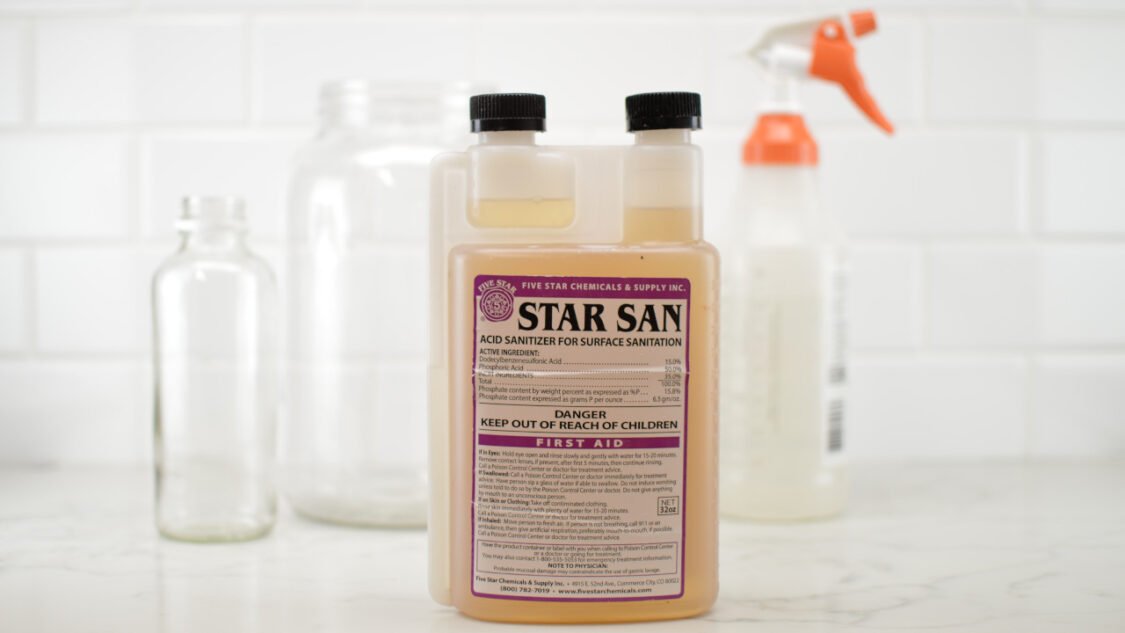
Helping you learn to brew kombucha, find inspiration for new kombucha flavors and use kombucha to make kombucha mocktails


